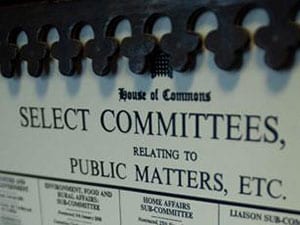Brexit minister Rt Hon David Jones MP visits UCL
By ucyow3c, on 30 March 2017
![]() Written by Conor Rickford, Senior Partnership Manager (Europe)
Written by Conor Rickford, Senior Partnership Manager (Europe)
On 16 March 2017, UCL hosted a visit by a UCL alumnus and someone who will be about as close to the Brexit negotiations as one can get. Rt Hon David Jones MP, formerly a UCL Laws student and Minister of State at the Department for Exiting the European Union, one of the key departments involved in negotiating the UK’s withdrawal from the EU, spent an afternoon speaking with a number of UCL staff and students.
With the “Brexit Bill” having received Royal Assent earlier that morning and David Davis MP, Secretary of State for Exiting the European Union, naming the UK a “science superpower” at the Brexit Select Committee just the day before, it was a great opportunity to show the breadth and diversity of UCL’s expertise, outline some key concerns of students and staff and look at what the future might hold for UK universities.
Over the course of the day, the Minister met with many students and researchers, some of whom remain unsure as to what the future might hold for those EU nationals currently residing in the UK.
The Minister emphasised that resolving right to remain is a “top issue” for DExEU negotiations and when Article 50 is invoked, it will almost certainly be among the first matters that the negotiators from both sides will want to resolve.
With more than 20% of our staff and around 12% of our students being EU (non-UK) citizens, I am sure that the vast majority at UCL would very much welcome an early declaration on this matter.
At the London Centre of Nanotechnology, the Minister met with students and research staff from both the LCN and UCL Mechanical Engineering.
Following a crash course in atomic force microscopy and quantum computing, he heard how existing EU research schemes have facilitated the creation of valuable collaborative networks across Europe.
The Minister pointed to Theresa May’s statement that the UK would “welcome agreement to continue to collaborate with our European partners on major science, research and technology initiatives” as a good indication that the government will seek to protect those strong research links after the UK’s departure from EU.
In my role in the Global Engagement Office, I often have to fall back on European funding stats to quickly summarise UCL’s research excellence (175 ERC grantees so far, more than €750m received in 2015…!), so it was refreshing to hear how our researchers value the opportunities to seamlessly collaborate across borders just as much as the funding itself.
 Close
Close





 like the BBC’s Question Time, there was broad consensus among the panel and the audience that Britain’s membership of the EU is vital: for science research; for the growth of knowledge through EU students at UK universities and through world-leading research collaborations and partnerships. But panellist
like the BBC’s Question Time, there was broad consensus among the panel and the audience that Britain’s membership of the EU is vital: for science research; for the growth of knowledge through EU students at UK universities and through world-leading research collaborations and partnerships. But panellist